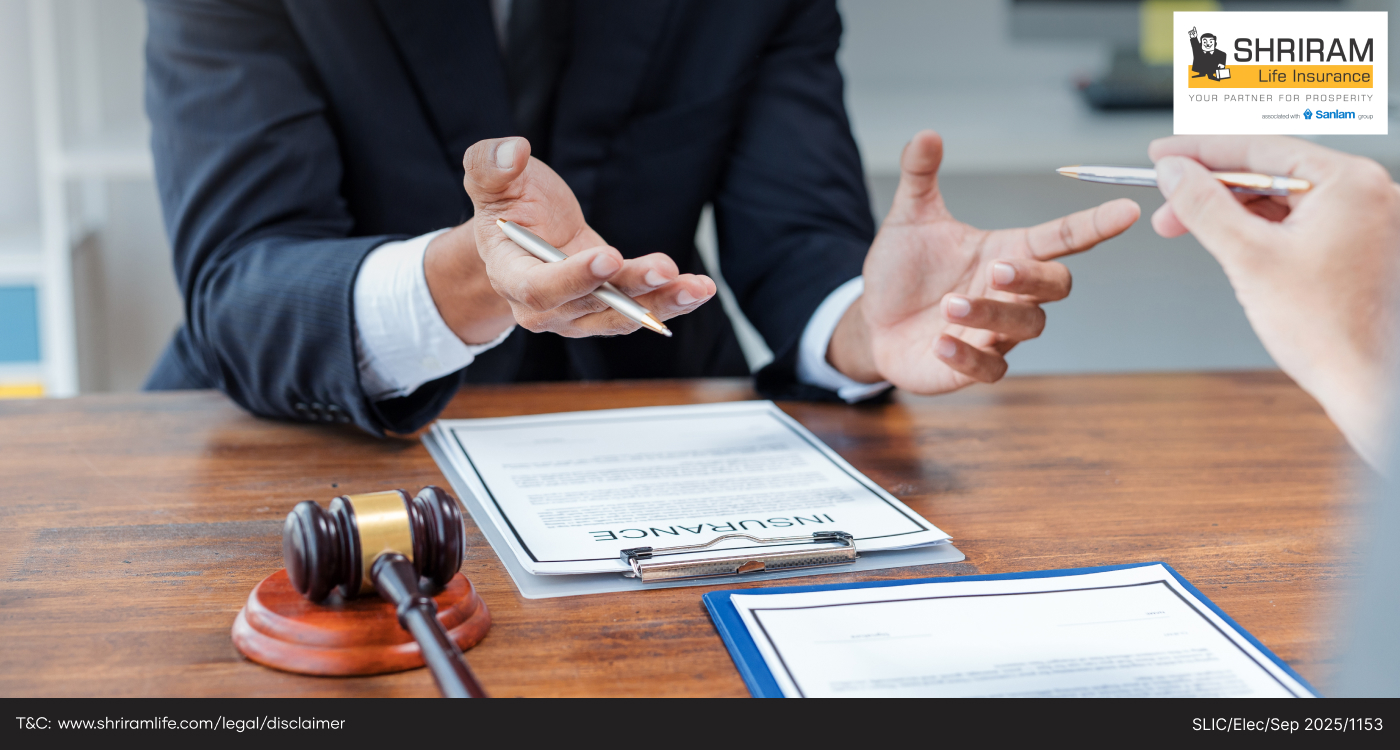What is Liability Insurance: Meaning, Benefits & Types
- Posted On: 24 Sep 2025
- Updated On: 24 Sep 2025
- 2 Views
- 5 min read

Table of Contents
One minor incident can cost your business thousands. Liability insurance protects businesses from unexpected claims and lawsuits. It covers legal costs and damages. Knowing the process and types of insurance policies will help you choose the right one.
What is Liability Insurance?
Liability insurance gives coverage against claims caused by injuries to third parties. It protects the insured person from having to pay a lump-sum amount if they’re found responsible.
Why is Liability Insurance Required?
Accidents can happen anytime. Having liability insurance protects your business. Without this policy, legal claims can result in heavy expenses. Liability insurance helps build a reputation and builds good trust with clients. This boosts confidence among professionals to focus and operate on business without worrying.
Key Benefits of Liability Insurance
Liability insurance protects any business and enhances its financial stability.
1. Professional Image
Liability insurance can help businesses look more professional. This shows that the company handles unexpected situations.
2. Provides Financial Security
For businesses, liability insurance acts as a safety net. It handles damage claims that could drain the finances.
3. Employee Protection
This type of policy safeguards employees. Legal costs get covered if an employee is at fault due to work-related matters.
4. Peace of Mind
Business owners can relax by knowing they’re protected. This helps them focus on work without worrying.
How Does Liability Insurance Work?
This insurance provides protection when you’re blamed for damages. Inform the insurer with documents such as invoices, legal notices, and medical records. The insurance company reviews and confirms liability to cover the costs. Depending on the plan, some amount requires deduction. The coverage handles claims and removes financial strain.
Types of Liability Insurance Policies
Different kinds of liability insurance policies make you choose the right policy.
Commercial Liability Insurance Policy
This is a general insurance policy. It is the most common type of insurance for businesses. It protects the company from legal risks. It helps business that deals with customers and clients on a day-to-day basis.
Example, A bakery’s employee spilt tea that caused the customer's body to burn. This insurance covers customers’ medical bills.
Professional Liability Insurance
Professional Liability Insurance protects individuals who specialise in giving professional advice. It’s ideal for professionals such as doctors, consultants or architects. It offers coverage for claims arising from errors in the service industry. Professional Liability Insurance is also called Errors and Omissions Insurance.
Example: A consultant gives business advice to invest money that leads to a loss. This insurance covers claims and legal fees.
Commercial Crime Insurance
Commercial Crime Insurance is also known as fidelity insurance. This insurance protects your company from fraud and theft committed by employees. It protects the company from severe financial damage. There are two kinds of commercial crime insurance.
First-Party Crime Coverage
This policy saves businesses from crimes committed against the company itself. This includes direct losses such as fraud, theft or forgery caused by the employees.
Example: A staff member forges a cheque and manipulates the accountant.
Third-Party Crime Coverage
It protects the business when an employee causes harm to someone. It protects the company from the claims raised by customers and clients.
Example: An employee from the company steals money from the client.
Carrier Legal Liability Insurance
This policy covers risks related to the transportation of goods. Transportation often involves risks such as theft, accidents or damage. It prevents financial risks and ensures smooth flow while safeguarding goods and carriers. Opting for protection shows professionalism to business partners.
Example: In a accident if goods suffer damage a insurance helps the carrier pay the loss.
Product Liability Insurance
It covers cost if a product you made caused harm to a customer. Even with strict quality control, products get defective. This policy covers the claims that the insured needs to pay for third parties.
Example: If a customer suffers burns from a skincare product due to a defect. Here, the insurance covers the medical bills.
Trade Credit Insurance
This policy gives cover to companies against the financial risk of late payments. Trade Credit insurance is perfect for businesses that sell goods on credit terms. It covers non-payment risks coming from bankruptcy.
Example: If you sell goods on credit, but your customer can’t pay because they go bankrupt. Here, trade credit insurance helps to recover the costs.
Public Liability Insurance
Public Liability Insurance protects businesses against third-party liabilities, like property damage or injury. Such legal issues can put your business at risk. This policy helps to manage claims. It’s also known as Third-Party Insurance.
Example: If a customer slips and falls on a wet floor in your shop. Public Liability Insurance helps to cover their medical bills.
Eligibility Criteria to Buy Liability Insurance
To buy this policy, you need to know certain conditions.
- Age - Individuals must be 18 years of age or older.
- Business Registration - The company should have proper registration documents.
- Risk Profile - The insured will check the business's operations before approval.
- Compliance - The business should follow legal and safety standards. Non-compliance leads to rejection.
- Premium - You should pay the premium on time to keep the policy active.
Liability Insurance Claim Process
Knowing the liability insurance claim process recovers the costs and avoids delays.
1. Notify the Insurer
Inform the insurance company as soon as possible after the accident happens. You can call, message, email, or visit the nearest branch office.
2. Gather the Evidence
Collect all incident-related information like photos, videos, witness statements, and supporting documentation.
3. Review Policy Coverage
Review your coverage. Check limits, exclusions, and conditions affecting the claim. This step helps you understand what’s included in the claim and how much you can claim.
4. Submit the Form
Fill in all the important information in the claim form. The provided information helps to support your claim.
5. Assessment
An insurer from the company will review your case. They will check if the claim is valid and how much money you’ll receive.
6. Follow up
Stay in contact with your insurance company to track the settlement claim.
7. Review Settlement Offer
When the insurance company offers a settlement, recheck the offer
Documents Required for Claim Process
Providing the crucial documents can speed up claim settlement. Here’s what you need to submit.
- Claim Form - The insured must provide all details related to the incident. Common information such as location, time, date and parties involved.
- Business Registration Proof: Requires a certificate of trade license, incorporation or GST registration.
- Incident Proof: Documents like videos or photos are important for the police reports.
- Legal Documents: Includes legal notices, demanding letters or court filings.
- Medical Records: Give medical records if there are body injuries.
- Policy Details: Includes insurance policy number, type of coverage, and coverage limits.
Smart Protection for Smarter Business
Liability insurance is your safety net, protecting you from unexpected claims. Investing in the right coverage provides you with safety. The policy pays your legal fees, covers settlements and handles the damages. You have peace of mind knowing that one client's slip and fall won’t destroy everything you’ve built. Liability coverage also means saving your reputation.
Disclaimer: The information provided is intended for general informational purposes only. For personalised recommendations, please consult a certified insurance professional.
ARN:SLIC/Elec/Sep 2025/1154
FAQs
What is the role of liability insurance?
Policy protects against financial losses from legal claims, property damage or injury.
How does liability insurance work?
You report the claim to the insurance company. They review and investigate to pay the cost of the loss.
Is Liability Insurance compulsory?
It's recommended to buy liability insurance. This offers protection against the unexpected claims by third parties.
What is an example of Liability Insurance?
A simple example is that Riya owns a small bakery in her town. One day, a customer comes and slips on a wet floor and hurts her ankle. The customer sues Riya for medical reasons. Riya had general liability insurance that covered customers’ medical expenses. Without insurance, Riya would have to pay everything from her pocket. This would have been a bigger burden for her business.
What Is a Pension Plan and How Does It Work for Your Retirement
OTP Verification
Please Enter OTP that has been sent to your registered
Mobile Number +91
You may be interested in
People also search for
Our Other Popular Plans








